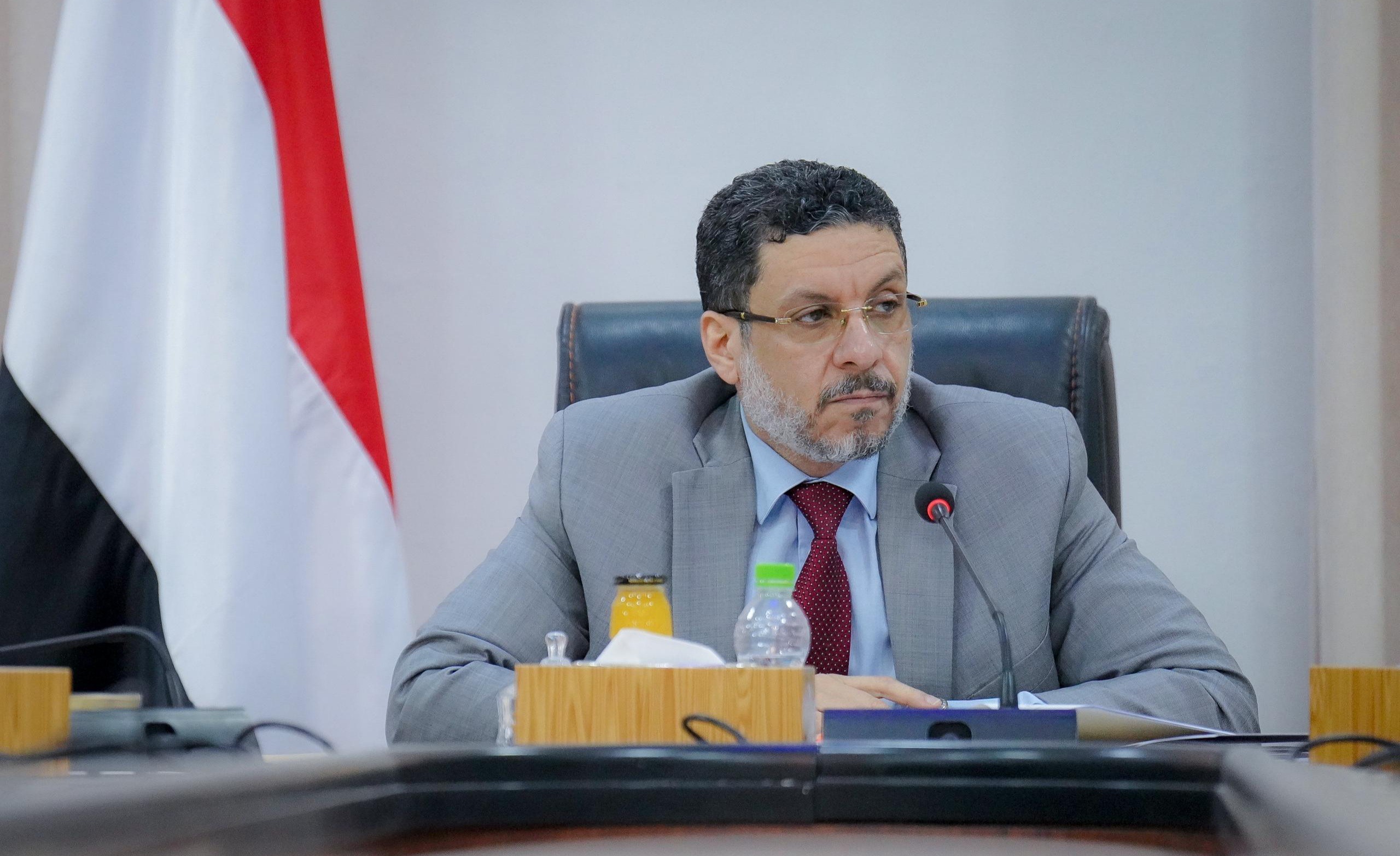


Barran Press
The internationally recognized Yemeni government on Tuesday, July 30, 2024, warned the Iran-backed Houthi rebels, listed as a terrorist organization by several countries, against "holding the country's fate hostage to their futile battles in service of Tehran's agenda." The government urged the group to "engage positively with peace efforts to stop the bloodshed."
This warning came during a cabinet meeting chaired by Prime Minister Ahmed Awad bin Mubarak in Aden, the temporary capital of Yemen, just days after an agreement was reached to de-escalate economic tensions and reverse central bank decisions.
According to the official Yemeni news agency Saba, the government reiterated its strongest condemnation of the Israeli airstrike on the port of Hodeidah, calling it a violation of Yemen's sovereignty and a blatant disregard for international law and norms.
Simultaneously, the government cautioned the Houthi rebels against "continuing to hold Yemen's fate hostage within their futile battles serving the interests of the Iranian regime and its expansionist project in the region."
The government affirmed its support for UN, regional, and international efforts to launch a comprehensive political process that meets the aspirations of all Yemenis, emphasizing its commitment to achieving a comprehensive and just peace based on the three nationally agreed-upon, regionally and internationally supported references, particularly UN Security Council Resolution 2216.
The cabinet meeting called on the Houthi rebels to "exercise reason, engage positively with peace efforts, stop the bloodshed, prioritize the people's interests over any other, avoid resorting to catastrophic ventures in response to internal and public pressures and their living priorities, and cease exploiting the Palestinian people's suffering and their just cause."
Last Tuesday, July 23, the UN envoy's office announced that the internationally recognized Yemeni government and the Houthi rebels had agreed on several measures to de-escalate tensions concerning the banking sector and Yemenia Airlines.
According to the envoy's statement, the agreement included "revoking recent decisions and measures against banks by both sides and refraining from any similar decisions or measures in the future. Additionally, it includes the resumption of Yemenia Airlines flights between Sana'a and Jordan, increasing the number of flights to three daily, and operating daily flights to Cairo and India, or as needed."
The agreement also stipulated that meetings would be held to address administrative, technical, and financial challenges facing the company, and that discussions would begin on all economic and humanitarian issues based on a roadmap.
"Grundberg" highlighted the crucial role played by Saudi Arabia in reaching this agreement, affirming the UN's readiness to work with both parties to implement the agreed-upon measures. He offered to facilitate communication with authorities in Jordan, Egypt, and India.
As is customary with every agreement, the Yemeni government promptly fulfilled its commitments by suspending measures taken against banks, while Yemenia Airlines resumed flights from Sana'a to Jordan, Cairo, and India for the first time since 2014.
Given the Houthis' history of reneging on and circumventing agreements, the government appears more pessimistic about their seriousness in achieving a genuine breakthrough in the economic file. Member of the Presidential Leadership Council, Othman Majali, stated during a meeting chaired by Council President Rashad Al-Alimi with the leadership of the local authority in Hadhramaut that "the Council is fully aware of the Houthis' intentions and their terrorist behavior."
Majali emphasized that the Presidential Leadership Council's commitment to de-escalation "is aimed at providing the regional and international community with an opportunity to revive the path towards comprehensive and just peace in accordance with its declared references."
Last December 23, the United Nations announced that the Yemeni parties had reached understandings to commit to a set of measures, including a ceasefire encompassing all of Yemen, measures to improve living conditions in Yemen, and engagement in preparations for the resumption of a comprehensive political process under UN auspices.
The roadmap and peace efforts in Yemen stalled due to attacks launched by the Houthi rebels, listed as a terrorist organization globally, against commercial cargo ships in the Red Sea, the Arabian Sea, and the Gulf of Aden since last November.